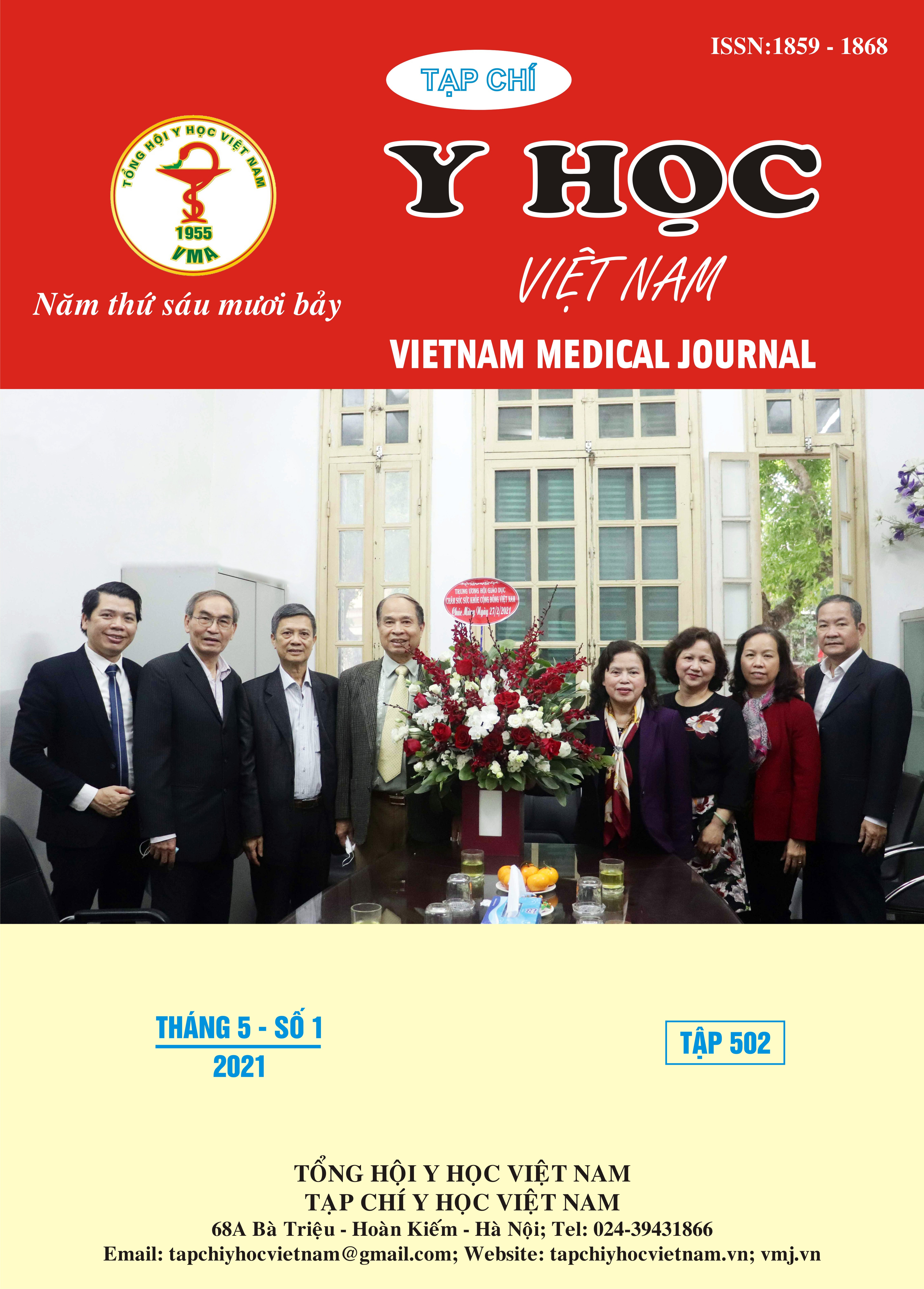EVALUATING THE INITIAL RESULTS OF YTTRIUM-90 RADIOEMBOLIZATION IN THE TREATMENT OF HEPATOCELLULAR CARCINOMA
Main Article Content
Abstract
Hepatocellular carcinoma (HCC) is a common cancer with a high mortality rate in Viet Nam as well as in the world. Transarterial Chemoembolization plays a huge role in the treatment of HCC, in which Yttrium-90 radioembolization in selective is a new, highly effective method.
Purpose: To evaluate the initial safety and efficacy of Yttrium-90 Radioembolization for Hepatocellular Carcinoma. Materiels and methods: Prospective study of 25 patients diagnosed with HCC between January and February were treated with Yttrium-90 radioembolization. At 1 month and over 3 months, the patient was re-examined; tested by tumor marker and scanned for Computed with contrast. We take image information about tumor diameter, tumor contrast enhancement patterns. We assessed response to treatment according to modified Response Evaluation Criteria (mRECIST) and RECIST in Solid Tumors. Follow up the survival time of patients who have more than 3 months after treatment. Results: 25 patients (20 males, 5 females) with mean age 60 ± 9.8 years (from 38 years to 77 years), mean tumor diameter 55,76 ± 20,95mm, the median of tumor markers AFP, AFP-L3 and PIVKA-II is 7,5 ng/ml; 17% and 183 mAU/mL. At 1 month after the intervention, 17 patients re-examined, mean tumor diameter 46,5 ± 18,7mm; complete, partial, stable response, progressed according to RECIST is 0%; 35,3%; 58.8% and 5.9%; mRECIST 23,5%; 41,2%; 29,4% and 5,9% respectively. At the time of more than 3 months after the intervention, there were 13 patients re-examined with a mean tumor diameter 54,6 ± 24,8 mm. The response of complete, partial, stable, progressing according to RECIST is 0%; 53,8%; 15,4% and 30,8%, mRECIST is 30,8%; 23%; 15,4% and 30,8% respectively. There’s decrease value of tumor marker after treatment but has not significant. 19 patients with time to follow up ≥ 3 months, mean time survival is 18,4 ± 0,5 tháng. Conclusion: Yttrium-90 Radioembolization or Selective internal radiation therapy with Y-90 is an effective, safety method especially in large and unresectable hepatocellular carcinoma.
Article Details
Keywords
Radioembolization, Selective internal radiation therapy, Yttrium, hepatocellular carcinoma
References
2. Rana N., Ju A.W., Bazylewicz M., et al. (2013). Yttrium-90 Radioembolization in Patients with Hepatocellular Carcinoma Who have Previously Received Sorafenib. Front Oncol, 3, 323.
3. Braat A.J.A.T., Huijbregts J.E., Molenaar I.Q., et al. (2014). Hepatic Radioembolization as a Bridge to Liver Surgery. Front Oncol, 4.
4. Salem R., Lewandowski R.J., Mulcahy M.F., et al. (2010). Radioembolization for hepatocellular carcinoma using Yttrium-90 microspheres: a comprehensive report of long-term outcomes. Gastroenterology, 138(1), 52–64.
5. Sangro B., Carpanese L., Cianni R., et al. (2011). Survival After Yttrium-90 Resin Microsphere Radioembolization of Hepatocellular Carcinoma Across Barcelona Clinic Liver Cancer Stages: A European Evaluation. Hepatology (Baltimore, Md), 54, 868–78.
6. Trương Thị Thanh (2016) Đánh giá hiệu quả bước đầu trong điều trị ung thư biểu mô tế bào gan bằng phương pháp nút mạch sử dụng hạt vi cầu phóng xạ Yttrium-90. Luận văn tốt nghiệp Bác sĩ nội trú, Trường Đại Học Y Hà Nội
7. Keppke A.L., Salem R., Reddy D., et al. (2007). Imaging of Hepatocellular Carcinoma After Treatment with Yttrium-90 Microspheres. American Journal of Roentgenology, 188(3), 768–775.


